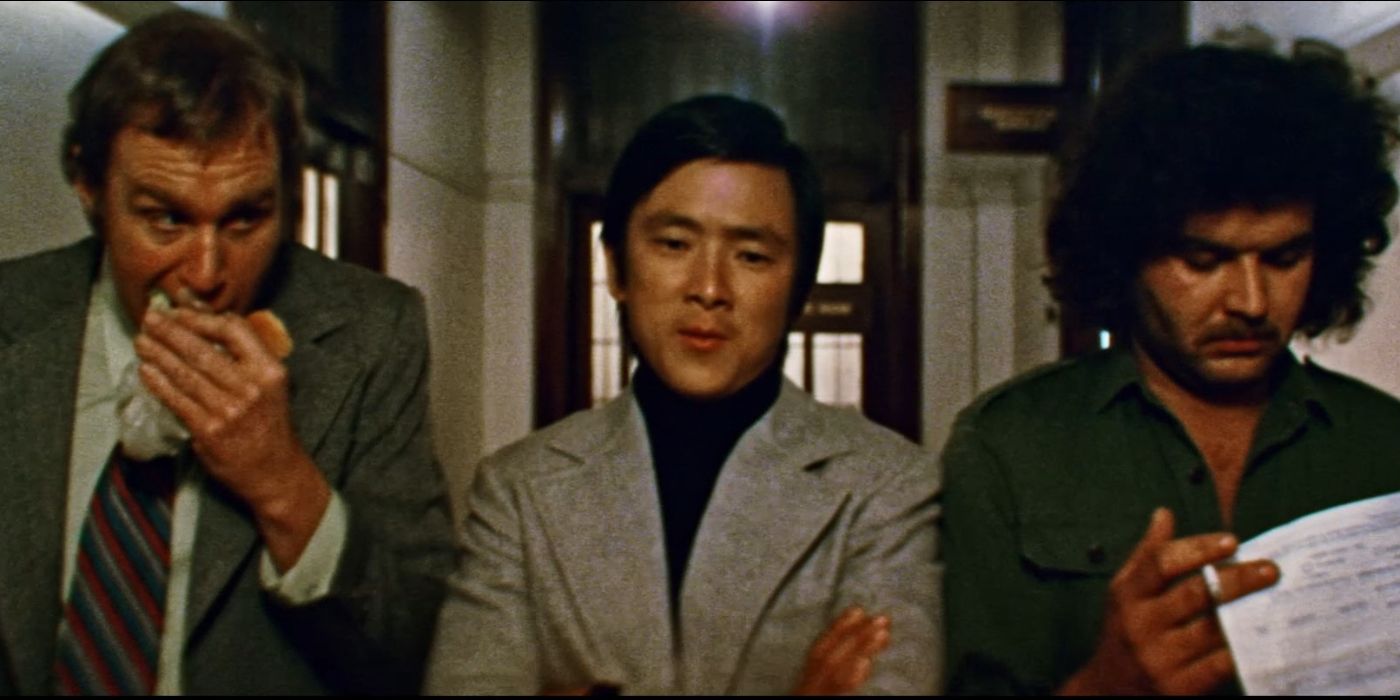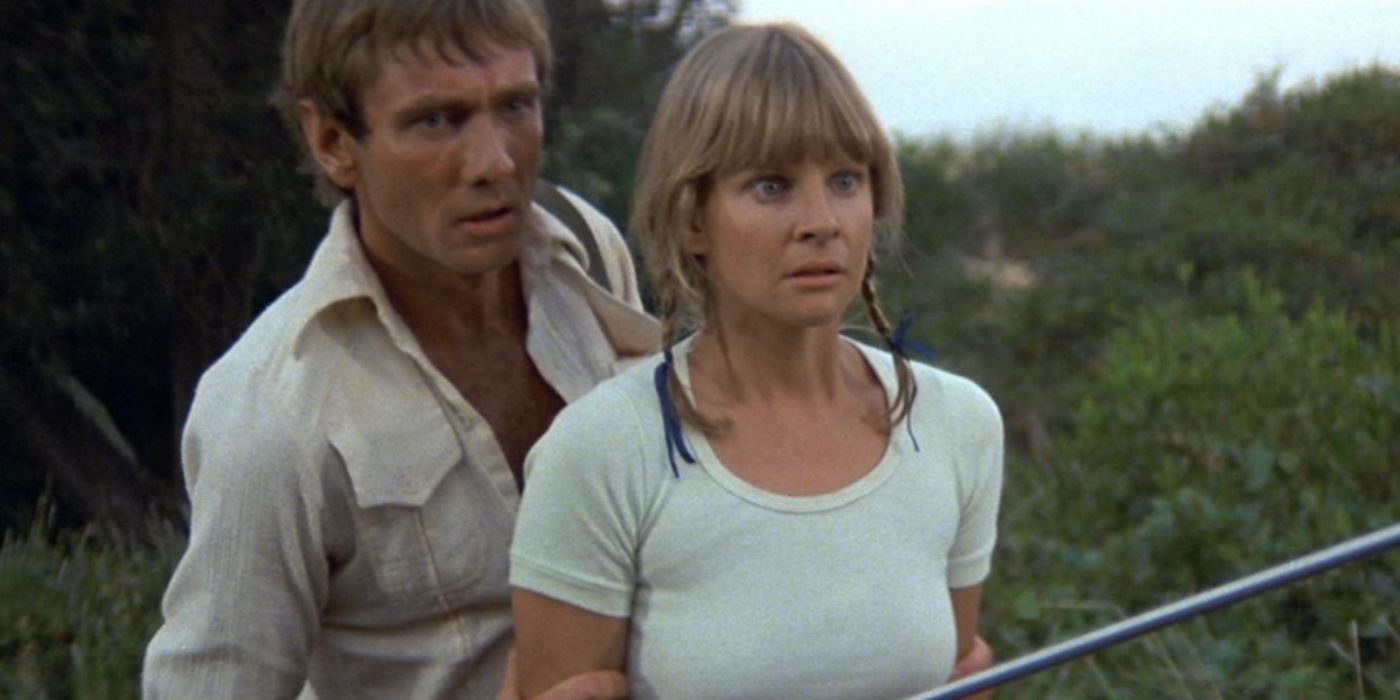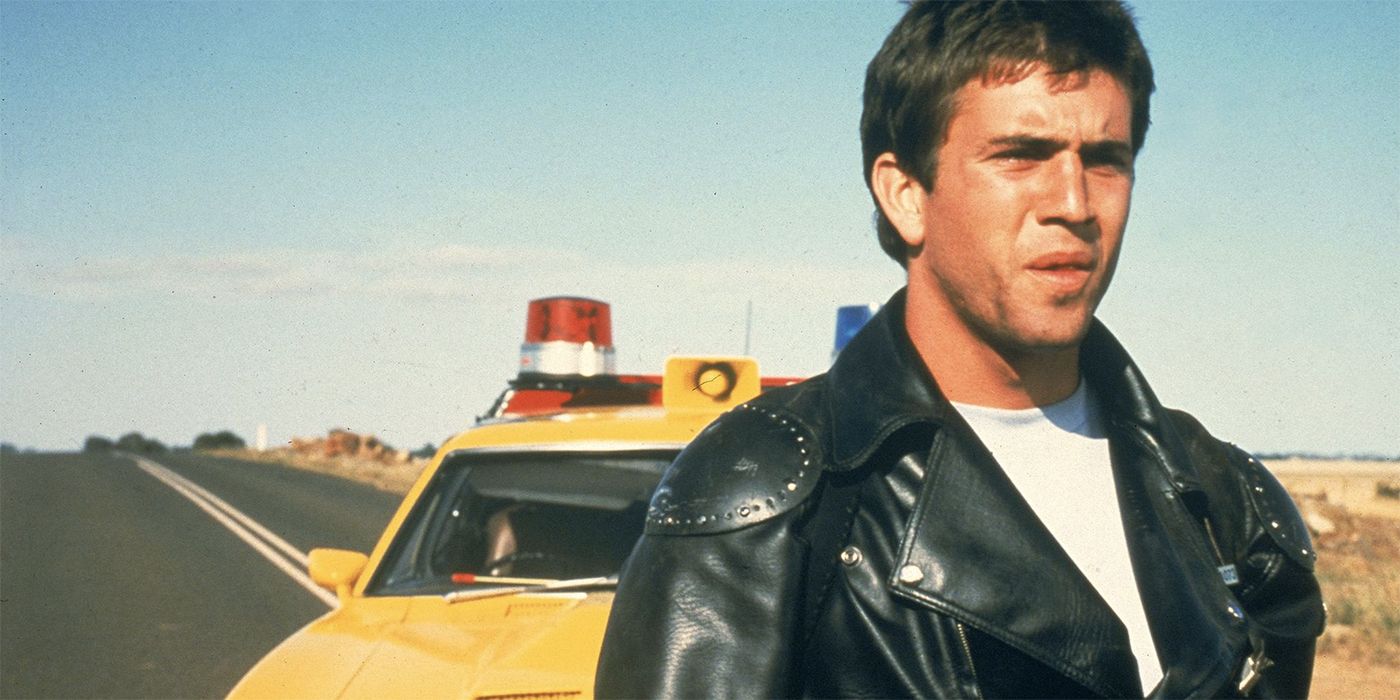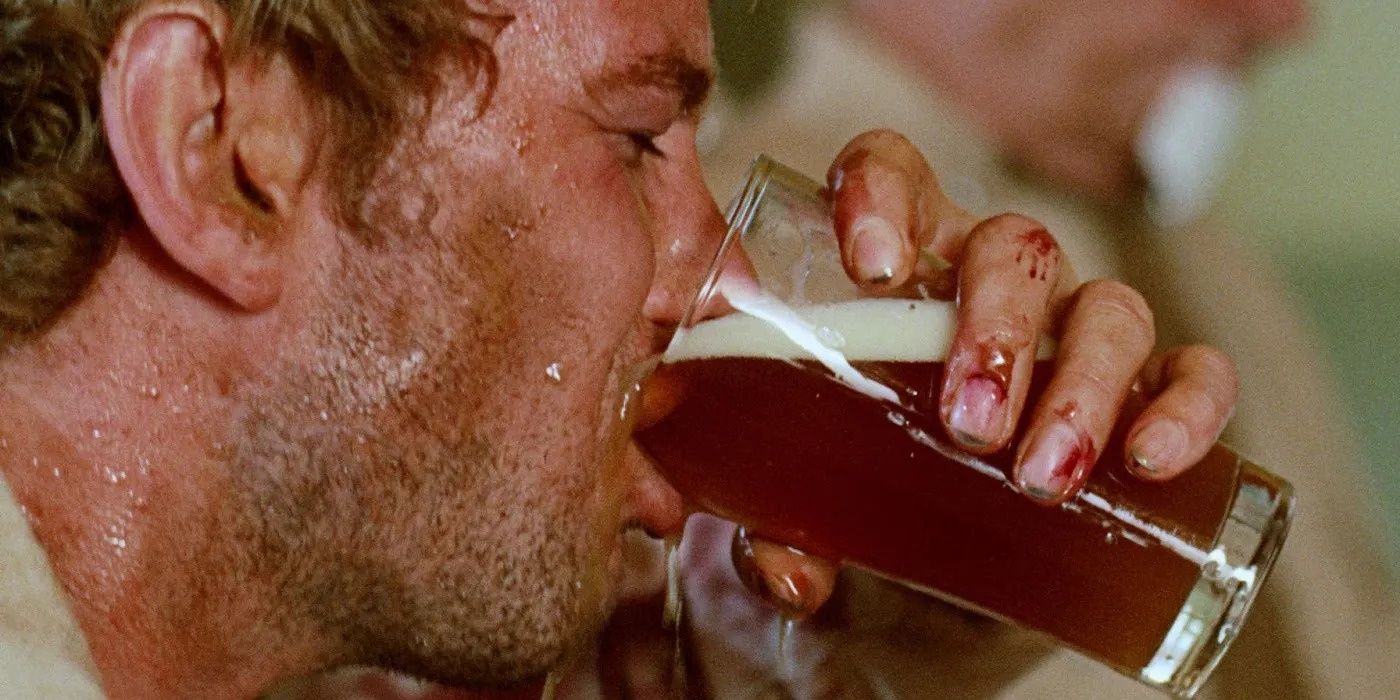As the cinematic landscape, particularly in America, changed drastically through the early 1970s, the onset of exploitation films became a cheap and schlocky yet strangely entertaining and stylistic alternative for many viewers. Throughout that same period, the Australian film industry experienced something of a high point in terms of international interest, propped up by such successes as Picnic at Hanging Rock and Walkabout.
These two trends would collide to see Australia create a new wave of exploitation films, affectionately dubbed “Ozploitation” in the 2008 documentary Not Quite Hollywood: The Wild, Untold Story of Ozploitation! Rife with thick accents, genre flare, and a peculiar appetite for violent biker gangs, these films represent just some of the very best of Australia’s exploitation films over the years, capturing a particular time and place with unique and unrestrained flair.
10 ‘Fair Game’ (1986)
Directed by Mario Andreacchio
A crazed outback thriller of revenge and violence, Fair Game has a snarling tenacity to it even as it amplifies its more confronting scenes to a ridiculous level to soften the viewing experience. Jessica (Cassandra Delaney) runs a wildlife sanctuary that becomes the target of three sadistic kangaroo hunters whose search for new game sees them terrorize her as they kill the animals. Incensed, Jessica sets out to take vengeance on the men and bring their cackling, psychotic joyride to an end.
Fair Game has its fair share of shortcomings, including some content that has not aged at all well. Still, as a trashy ’80s thriller that offers a rewarding tale of comeuppance, it is easy to enjoy. It served as a major influence on Quentin Tarantino’s ode to exploitation films, Death Proof, becoming a quiet grindhouse stunner that encapsulates the aura and intensity of low-budget Aussie thrillers.
Watch on Tubi
9 ‘Alvin Purple’ (1973)
Directed by Tim Burstall
It would be difficult to discuss exploitation cinema without addressing the sex comedies that ran rampant during the ’70s and ’80s. Australia had its fair share of those throughout, but none as well known as 1973’s Alvin Purple. It follows a Melbournian door-to-door waterbed salesman who women find irresistible. With his relentless sex life taking its toll on him, Alvin (Graeme Blundell) seeks medical help to come up with a solution, but it only lands him in more trouble when he is accused of operating a brothel.
Despite being made on a measly budget, the film became a significant box office hit, particularly in the context of Australian cinema. It can be seen as something of a godfather for the sex comedy genre, even if it doesn’t receive half the attention of others. With its raunchy comedy proving successful, Alvin Purple received two sequels on its way to becoming an icon of Ozploitation cinema and a gem of ’70s sex comedies in its own right.
Buy on Amazon
8 ‘Stone’ (1974)
Directed by Sandy Harbutt
Movies about outlaw biker gangs were a defining staple of many of Australia’s exploitation efforts of the ’70s and ’80s. Regardless of whether they were surrealist, post-apocalyptic hellscapes or pulsating and grounded thrillers set in contemporary times, “bikies” (as they are sometimes known in Aus) make for great villainous hordes. However, 1974’s Stone flips that on its head, focusing on a biker gang that is targeted by a serial killer after one of its members witnesses a political assassination.
A stylistic punch of complex morality,
Stone
has a strong identity that makes it a striking gem of Ozploitation film.
With a vicious resolve to throw sex, drugs, and violence at the screen with a roaring, raspy horsepower, Stone is one-of-a-kind, even by Ozploitations standards. It enthralls audiences in the dilemma faced by Detective Stone (Ken Shorter) – an undercover cop working with the GraveDiggers to solve the murders – as he is forced to choose between his assignment and his newfound loyalty to the gang. A stylistic punch of complex morality, Stone has a strong identity that makes it a striking gem of Ozploitation film.
Watch on Tubi
7 ‘The Return of Captain Invincible’ (1983)
Directed by Phillippe Mora
For all the genre’s achievements in recent decades, superhero cinema has never seen another movie quite like The Return of Captain Invincible. An Australian musical comedy, it focuses on Captain Invincible (Alan Arkin), an American superhero through the 1920s, ’30s, and ’40s who is forced into retirement when he faces political persecution. Relocating to Australia, he loiters as an alcoholic until the return of his arch nemesis, Mr. Midnight (Christopher Lee), prompts the U.S. government to beg for his return, presenting an opportunity for redemption.
To call the movie ridiculous would be an understatement. However, it is incredible how, after more than 40 years and the domination of superhero movies in recent years, The Return of Captain Invincible still feels vibrant and refreshing. The comedic musical numbers work an absolute treat, as does its wacky story, making it a cherished cult classic of Aussie cinema with a delightful, if not somewhat dated, exploitation streak to boot.
Watch on Tubi
6 ‘The Man from Hong Kong’ (1975)
Directed by Brian Trenchard-Smith
Laid back Aussie charm meets the full breadth of martial arts mayhem in this co-production between China and Australia that is pure action from start to finish. When Australian police capture a Chinese drug dealer, Hong Kong’s Inspector Fang Sing Leng (Jimmy Wang Yu) is dispatched to translate and aid their investigation. As he pursues more leads, Fang unearths the involvement of powerful businessman Jack Wilton (George Lazenby) and vows to bring the enterprising criminal down despite others telling him Wilton is untouchable.
The Man from Hong Kong
is proof that the martial arts genre can shine in every corner of the world.
While there is a cheesy and schlocky sense of so-bad-it’s-good fun that presides over much of the film, The Man from Hong Kong does conjure up some incredible thrills courtesy of its strong stunt work and impressive fight sequences. It also marks the feature film debut of director Brian Trenchard-Smith, whose work in Australian cinema would become crucial to the Ozploitation movement and low-budget Australian film in general. A clash of two worlds, The Man from Hong Kong is proof that the martial arts genre can shine in every corner of the world.
Watch on Amazon
5 ‘Next of Kin’ (1982)
Directed by Tony Williams
Psychological terror abounds in this early ’80s horror mystery flick that has become something of a cult classic due to its intense atmospheric dread, meticulous pacing, and the praise heaped upon it. After the death of her estranged mother, Linda Stevens (Jacki Kerin) inherits a rural estate that she discovers is a retirement village. Strange things start happening when she begins reading her mother’s diary and senses an ominous presence around her.
While its low-budget origins are plain to see, Next of Kin still runs with a chilling sense of suspense as Linda’s investigation into her family history and the deaths in the retirement village is imbued with a harrowing darkness. Complemented by striking visuals and plenty of revealing twists, it is one of Australia’s most underrated horror movies that defines the nation’s excellence in the genre during the Ozploitation boom.
Watch on Criterion
4 ‘Long Weekend’ (1978)
Directed by Colin Eggleston
Australia’s nature and wildlife are a defining pillar of the nation’s identity, be it the coarse beauty of the country’s sun-scorched landscapes or the near-mythic reputation of its famously deadly animals. Long Weekend plays with that fabled and ferocious fragment of Australian culture. A married couple nearing divorce goes on a camping trip in an attempt to rekindle their dwindling romance. While initially destructive of the surrounding environment, the couple soon finds themselves on the receiving end of Mother Nature’s wrath.
Filling contemporary and modern viewers with a renewed fear of Aussie animals,
Long Weekend
marks one of Australia’s most engaging thrillers of the 1970s.
Long Weekend is a direct and enraged parable about the consequences of abusing nature. It uses Everett de Roche’s taut, minimalist screenplay and savvy directing by Colin Eggleston to conjure up arresting tension and a man vs. nature narrative that challenges and enthralls audiences. Also filling contemporary and modern viewers with a renewed fear of Aussie animals, Long Weekend marks one of Australia’s most engaging thrillers of the 1970s.
Rent on Amazon
3 ‘Road Games’ (1981)
Directed by Richard Franklin
A captivating road thriller of serial killer intrigue and mounting suspense, Road Games thrives as a grounded and intense viewing experience. While set in the outback, it doesn’t succumb to the urge to focus on it at the expense of the story. It follows Pat Quid (Stacy Keach), a truck driver hauling a load to Perth who begins to suspect a man driving a green van is a serial killer targeting hitchhiking women.
Running at 101 minutes – which is actually quite long for Ozploitation cinema – Road Games weaves a layered story of suspicions and mystery that remains taut and contained. Its plotting is tidy, its thrills abundant and effective, and its lead performances from Keach and Jamie Lee Curtis give the film a natural comedic core that elevates the picture to be among the best of Australia’s ’80s B-movies. In Not Quite Hollywood, Tarantino lists it among his favorite films, while it also served as a key inspiration for the 2005 Aussie horror hit Wolf Creek.
Watch on Amazon
2 ‘Mad Max’ (1979) & ‘Mad Max 2: The Road Warrior’ (1981)
Directed by George Miller
Undeniably the most well-known title to come from Ozploitation cinema, Mad Max gave birth to a new wave of action movies. Taking place in a dystopian near-future where Australia is on the cusp of total societal collapse, the 1979 original focuses on a lone cop who vows to take down the brutal biker gang that murdered his family. Imbued with stylistic grit and astonishing action sequences, the film is a bonafide classic of Australian cinema.
However, Mad Max 2: The Road Warrior presents an even greater action spectacle, dialing up the intensity and bombast as it follows Max’s efforts to defend a group of survivors from a ruthless gang of bandits. The Mad Max saga has evolved over the years, with the recent reboots re-affirming Mad Max as one of the greatest titles in action movie history. However, for pure Ozploitation brilliance, it is hard to go past the original two movies.
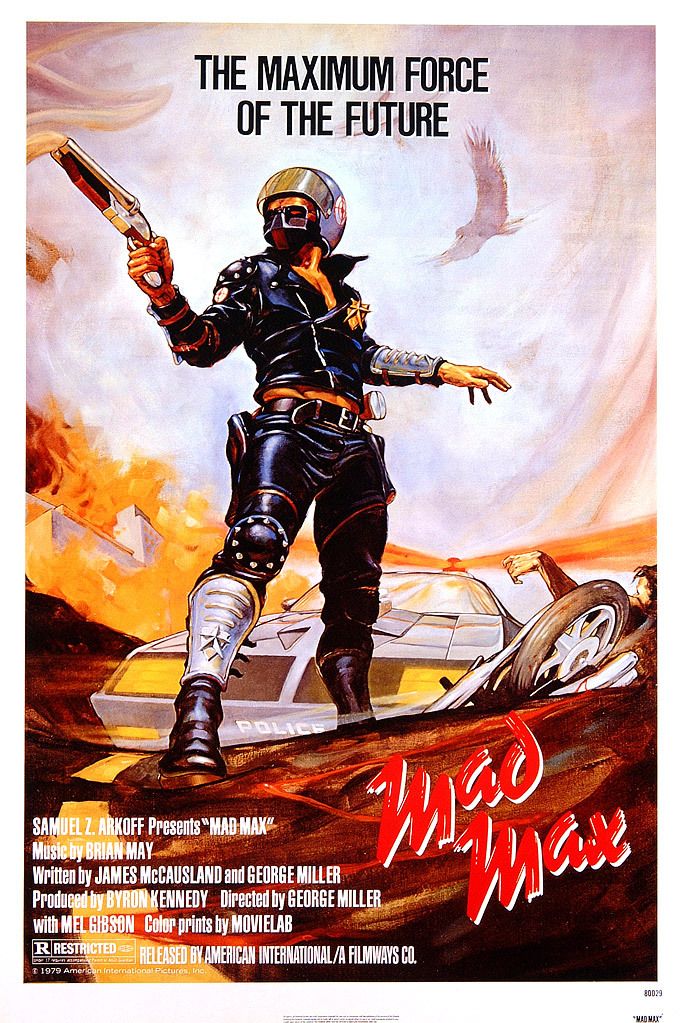
Mad Max
- Release Date
- May 12, 1979
- Runtime
- 82 Minutes
- Writers
- George Miller , James McCausland , Byron Kennedy
1 ‘Wake in Fright’ (1971)
Directed by Ted Kotcheff
Wake in Fright was released at the very beginning of the Ozploitation movement, yet it remains the greatest, most commanding film the wave of cinematic expression ever saw. Difficult to quantify in terms of genre, it follows a schoolteacher trying to get back to Sydney from his remote station, finding himself stranded in a mining town when a gambling spree leaves him broke. Despite his best efforts, he begins to succumb to the maniacal, drunk, and violent lifestyle of those around him.
Above all else, Wake in Fright has a haunting quality that is difficult to pinpoint the cause of. Its menacing ambiguity in such a way only makes it more intimidating, marking a queasy and disconcerting deep dive into rural Australian sub-culture at its darkest. Martin Scorsese has long championed the film for this unnerving effect, even selecting it as a Cannes Classic at the illustrious festival, making it one of only two movies ever to have been screened twice at the event.
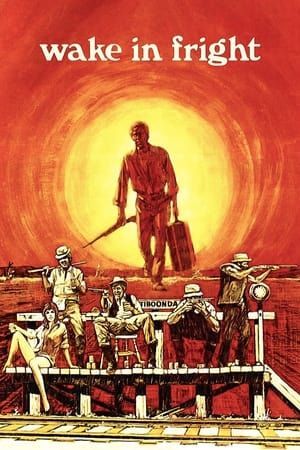
Wake in Fright
- Release Date
- July 21, 1971
- Cast
- Donald Pleasence , Gary Bond , Chips Rafferty , Sylvia Kay , Jack Thompson , Peter Whittle
- Runtime
- 109 Minutes
- Writers
- Kenneth Cook , Evan Jones , Ted Kotcheff
Watch on Max


